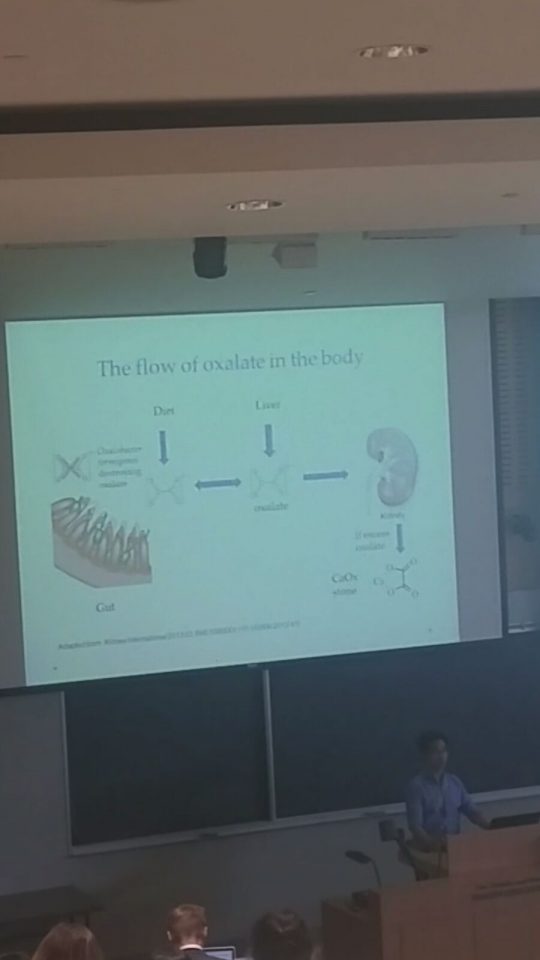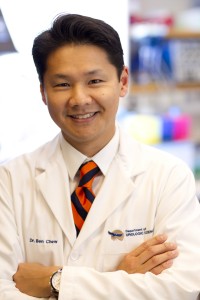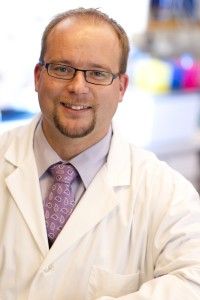Sullivan Research Day was an all day educational program hosted at the Paetzold auditorium at VGH on June 21, 2016. This event featured various lecturers that were invited to talk about their respective research in the field of urology. These lectures included presentations from Doctors, residents, fellows, and students in a variety of topics such as clinical research, cell plasticity and treatment resistance, genomics and bioinformatics, metabolism, and novel diagnostics and therapeutics as they pertain to various cancers.
One of the Stone Centre’s very own students – David Choy – was selected to present his ongoing metagenomics research project at this prestigious event.

Here is a short brief on the presentation…
“The Relationship between Bacterial Enzyme Pathways in the Gut and Metabolic Imbalances in Kidney Stone Patients”
Introduction: In kidney stone disease (KSD), patients suffer from excess absorption/production of oxalate that combines with calcium in the kidney to form calcium oxalate stones. In this study, we want to find out how the bacteria in the gut microbiome use their metabolic enzymes to regulate oxalate and other metabolites in and across the gut.
Methods: Fecal samples were collected from 17 patients with calcium oxalate kidney stones and their non-stone forming healthy spouses. DNA is extracted from the fecal samples and shotgun-sequence using Illumina HiSeq and the NexteraXT metagenomics library kit. The DNA sequences were then aligned to five gene databases to obtain meaningful annotations. The DNA was also sequence specifically for 16s_rRNA genes to identify the bacteria present.
Results: Metagenomics sequencing results show that patients and controls had different prevalences of genes involved in glyoxylate, butyrate, and vitamin metabolism. These pathways play a role in oxalate and calcium regulation because glyoxylate is a precursor for oxalate in hepatocytes, butyrate promotes the integrity of the colonocyte gut lining and therefore absorption of ions across the gut, and vitamin metabolism regulates calcium absorption respectively. These observations are further supported by 16s_rRNA data that showed controls had a higher prevalence of butyrate-producing bacteria of the Lachnospiriceae and Ruminococcaceae family. Additionally, we found that patients did not have any Oxalobacter formigenes (a well-known oxalate degrading bacteria) in their gut while most controls did.
Conclusions: These results suggest that bacterial enzymes play a role in regulating the absorption, degradation and secretion of oxalate in the gut whether by directly degrading oxalate or by affecting other metabolites. Further study may uncover targets in bacterial enzyme pathways for treatment of metabolic disorders like KSD.
Congratulations David!
For more information on the metagenomics project please visit our ongoing clinical research page!





